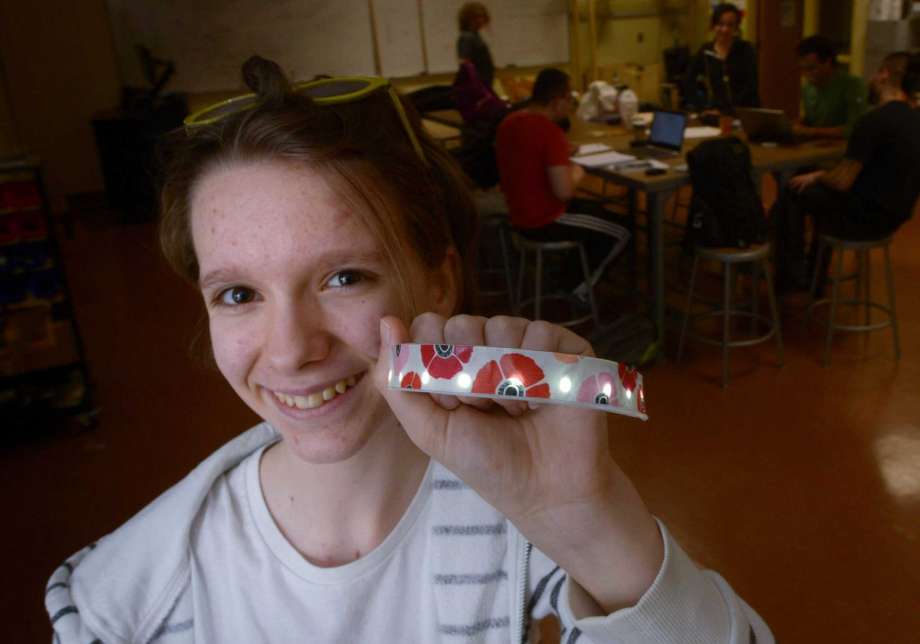By Stephanie Kim
The Hour, Norwalk, Conn.
WWR Article Summary (tl:dr) 15 year old Blythe Serrano came up with the idea for her “Light-Up At Night Pet Collar” several years ago after her own cat was hit by a car.
NORWALK
At 15 years old, Blythe Serrano has already won several pitch contests and the interest of investors with her idea that will keep pets in sight at night.
The Light-Up At Night Pet Collar is a bendable silicone collar for dogs and cats that lights up automatically in the dark and easily slips off, in case the collar gets caught on a fence or tree.
The Norwalk teen came up with the idea several years ago, when her cat got hit by a car at night and died.
She learned soon after that she was not alone in experiencing this kind of loss.
“In my research, I found that over six million dogs and cats get hit by cars per year, and that just seemed like a way huge number. So I wanted to prevent it,” Serrano said.
The light-up collar is the first product in Serrano’s developing business, 4 Paws Wearable — which she hopes to expand in the future. She plans on selling the light-up collars online soon and marketing them mainly for cats, since there’s less competition.
Although no investors have made any immediate offers yet, several have expressed their interest of investing in the business once her idea and plan are more well-defined.
For now, most of her funding has come from winning three pitch competitions against much older, more experienced adults. She credits those victories to her time at the Entrepreneurs Institute at Norwalk Community College, where she takes a few classes.
Homeschooled for most of her life, without prior interest in business, Serrano said she didn’t seriously consider selling her product until she attended the institute. That’s where she learned the nuts and bolts of building a business and creating a solid business proposal.
“The NCC Foundation has really been helpful in guiding me with the Entrepreneurs Institute, so it’s really thanks to them that I’ve gotten this far with the business aspect,” Serrano said.
The trajectory of Serrano’s business plan is the kind of path the institute hopes all of its students will follow, lead instructor Stephen Mesereau said. He had Serrano in his class last year and called her an “exceptional and brilliant innovator.”
“The institute is there to give you the knowledge to help basically focus your excitement, your passion, your innovation into something that is actually going to succeed,” Mesereau said. “So it’s sort of that big step you take to actually get out there and launch.”
Serrano’s next step is to create an advisory board, and to continue testing out the design for her light-up collar and testing out prototypes by exhibiting them at fairs and different events.
She also already has ideas for more products to expand her business with light-up sweaters for dogs, GPS-incorporated collars and apps for pet owners.
“At the moment, I would really like to just be able to get the business off the ground and start selling soon,” Serrano said.














































































































































































































































































































































































